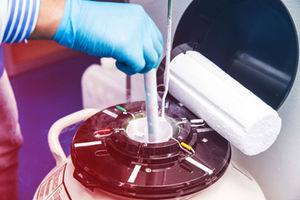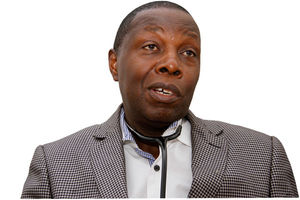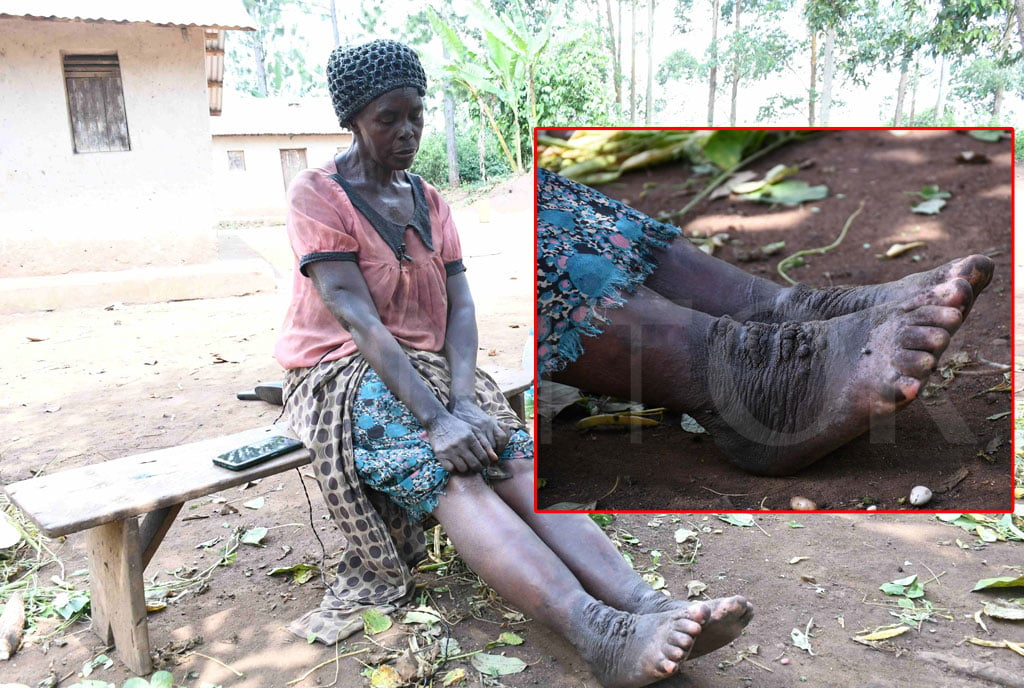
While the Lupus warrior encourages patients to take care of themselves, he emphasises the need to adhere to medication. Photo | Tony Mushoborozi
It is 10am on a sunny Wednesday morning, and I am at a Café in Kampala City Centre waiting for Derrick Mpagi, a Lupus warrior. Our meeting had been scheduled in advance and I am confident he is on the way.
However, 30 minutes later, Derrick has not arrived and his phone is switched off. Although I am hesitant to keep waiting, I decide to stay, thinking he might be going through a difficult moment such as a Lupus attack.
My patience pays off because four hours later, he sends a text message saying he was experiencing so much pain and many of the disease symptoms had worsened.
“I can barely get out of bed. I have a fever, headache, flu, cough, joint pains and night sweats,” he says.
Mpagi, 35, has been battling Lupus, an autoimmune disease since childhood and since it is mostly diagnosed among women, he has been unable to receive the medical assistance he needs.
Lupus, also known as systemic lupus erythematosus, is an inflammatory disease caused when the immune system attacks its tissue and organs.
Growing up
Derrick admits to being sickly as a child. His family had gotten used to his consistent ailments and most of the time, he was considered a complainer.
“For me, being in pain had become the norm. I would always have stiff joints, headaches, and the fire in my body was unbearable,” he says.
At first, doctors would always suspect malaria but tests for the same would come back negative.
“When I joined secondary school, I started suffering from chest pain and would faint during the school parades. If I stood for long, I would feel so tired afterwards that I would fail to do anything, let alone stand up straight,” he explains.
However, he would always try to participate in several school activities such as sports.
“I would act normal and play through the pain because I enjoyed playing soccer. I also liked rugby but could not handle it due to constant chest pain,” says, adding that despite the retakes and challenges at school, Derrick finally graduated with a postgraduate in Law at Makerere University in Kampala.
Severe symptoms
Living in constant pain bothered Derrick so much that in 2009, he set out to find the right diagnosis of what was ailing him. By this time, the disease had progressed and he had started experiencing severe stomach pain.
“At a certain hospital, after several tests, I was diagnosed with chronic stomach ulcers and I was put on medications that cost Shs6m a year. My aunt recommended Chinese herbal medicine but when she told me that the same medicine had not cured her deceased friend’s cancer, I stopped taking it,” he says.
Derrick also struggled with severe anaemia and his friends advised that he visit a dietician who would determine which foods are compatible with his blood group type. His friends also recommended an endoscopy, where a camera was inserted through Derrick’s throat. The results showed that his digestive system was inflamed and he had a lot of yeast, a sign that his immune system was compromised.
At his worst, he reveals, that doctors were overwhelmed and asked him to look into ancestral issues while others advised him to seek God.
Meanwhile, he started experiencing other symptoms including darkening of the skin, itching and hair loss, loss of appetite, darkening of the mouth, vomiting, fatigue and oedema or swelling of the stomach, face and legs.
After he was referred to a rheumatologist, the lupus warrior says other tests returned negative. However, another test showed CTD-(Connective Tissue Disease), an autoimmune disease, although the doctor’s diagnosis was inconclusive.
“It could be Lupus,” the doctor said and prescribed some medications for the pain. For the first time, Derrick says, “It felt like heaven. I had lived in so much pain that I did not know how to live without it anymore.”
Fighting
Derrick was not about to give up. Although the tests were inconclusive, he had done a lot of research on Lupus and believed he had all the symptoms of the disease. But while he sought other doctors’ opinions, he was referred to a psychiatrist who diagnosed him with Obsessive Compulsive Disorder (OCD).
The psychiatrist scheduled four sessions and kept increasing my medication, which had terrible side effects such as fatigue. I also could not sleep after taking the medication and I remember that at some point, I would only sleep for about five minutes per day.
Derrick recalls this as the most difficult time that robbed him of his faith in God. He admits, “I consider myself an atheist now. I believe that it is mostly human effort that will work because much as I prayed there were no answers. I am sure if I did not read more about the disease; I would have died.”
The diagnosis
In 2021, Derrick finally got the right diagnosis for Lupus at Agha Khan Hospital in Nairobi, Kenya.
“I joined a Lupus support group that recommended Dr Otieno, who after tests diagnosed me with Lupus, Rheumatoide arthritis and juvenile arthritis,” he says.
He adds that it is upon patients to do some research because there is a lack of evidence, especially on signs that present among dark skin tones such as the “red butterfly rush that is more evident among white-skinned people. Signs such as headache and fever could be mistaken for malaria, HIV or Tuberculosis.
He also advises those affected to wear sunscreen while under the sun and dress in broad-based hats to protect their heads from itching and hair loss.
“Avoid food with gluten such as chapati, samosas, avoid taking alcohol, reduce sugar intake, avoid taking oils and salts and stay away from places with loud music which could worsen the headaches. Get enough rest and avoid stressful situations,” he tips.
While the Lupus warrior encourages patients to take care of themselves, he emphasises the need to adhere to medication, although he sadly notes, it is costly.
“Many people suffering from Lupus are less productive at work, hence unable to afford the prescribed medication which can cost up to Shs15,000 per day on top of other costs such as monthly hospital visits,” he says.
To create more awareness of the disease, he advises the government to support patients with free sunscreens and to reduce taxes on medications for Lupus. He also advocates for more research on rare diseases, which will in the end help increase funding towards the treatment of such diseases.
To create more awareness about the disease and the fact that it does affect men as well as women, Derrick started the Might Foundation, a social enterprise.
“We write proposals and seek funding for Lupus management. We also provide free information on HIV/Aids services and products that can be easily accessed using a mobile app,” he says.








